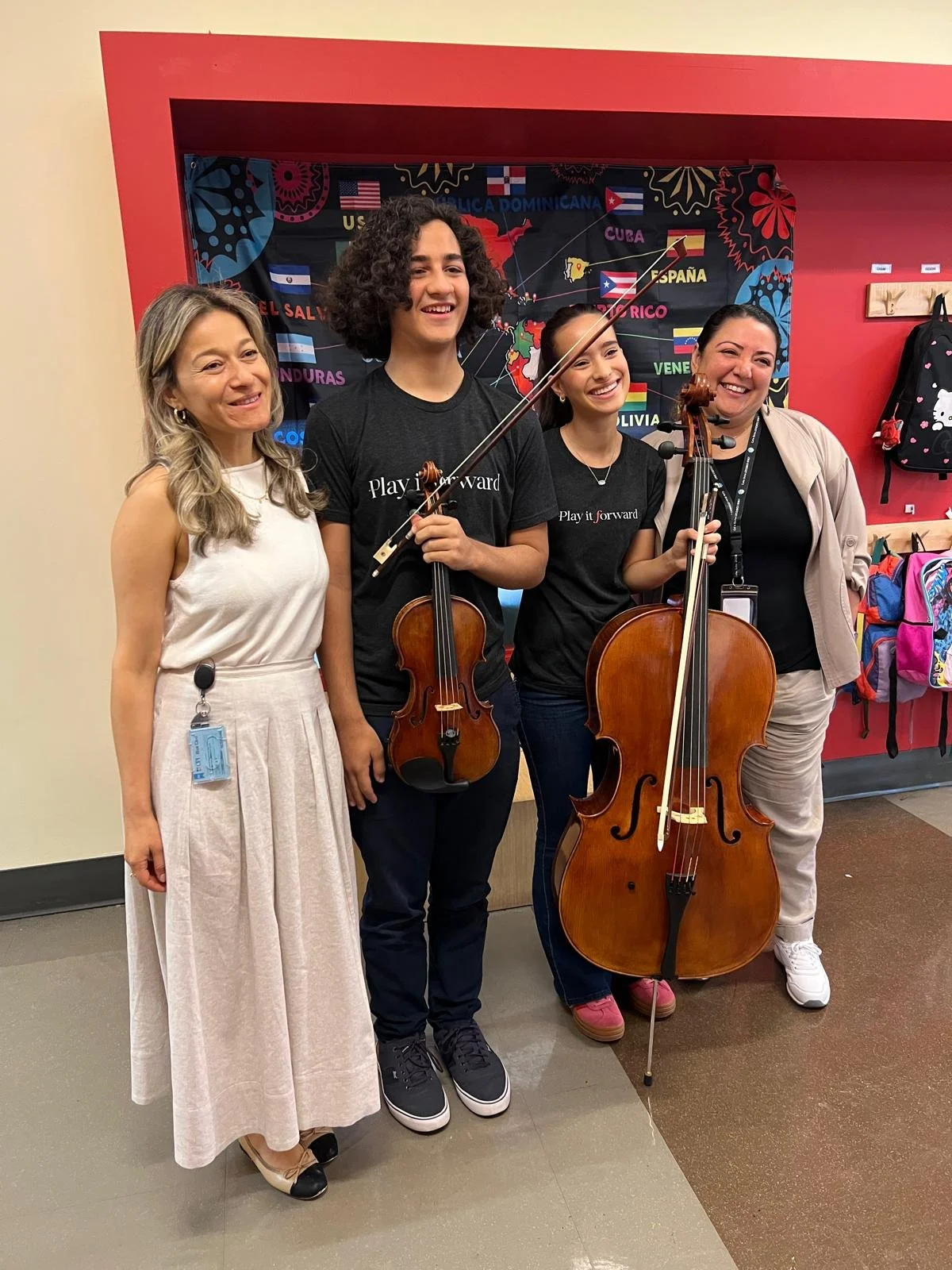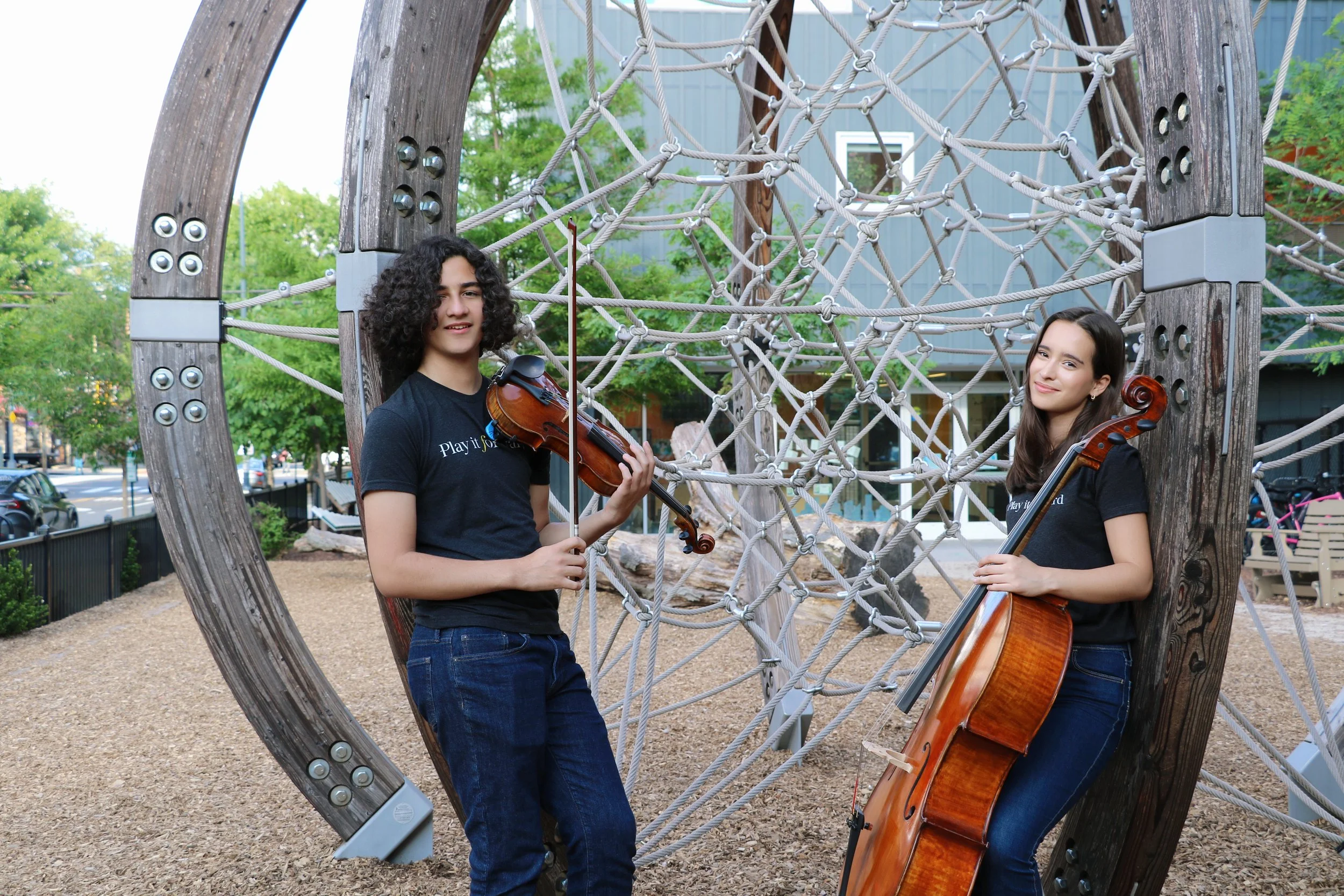Turn Your Love for Music into Community Impact
Join youth musicians in the DMV area, making classical music accessible to every child, regardless of ZIP code or income.
The Story We’re Changing
Their Reality
Imagine being a 6-year-old who loves music but has never touched a real instrument. Your school cut the music program three years ago when the budget shrank. Both of your parents work, and they think extracurricular activities are out of reach. Classical music feels inaccessible. You spend 5 hours a day on screens because no one's shown you what else is possible. You don't know that playing an instrument is within reach and that it would also help you improve your school scores, help you focus more or give you a supportive community. The free or accessible programs that exist in your community are invisible to your family.
Your Power
Now imagine, YOU, as a volunteer for Play for Music Education walk into their classroom with your instrument. You look like an older sibling, not an adult who is a professional musician. You play Baby Shark and Bach. You read a children’s book that shows the beauty of making music. You tell them about free or accessible programs in their communities and share how cool it is to play in orchestras or chamber groups. Suddenly, classical music isn't impossibly distant. It's right there, accessible and meant for them too. In 2-3 hours, you've changed their entire perspective on what's possible.
The Opportunity
You need 75-100 hours of community service to graduate from high school. What if you could earn those hours while using your musical talents to inspire elementary school students?
Our spring pilot reached 150 kids and 250 parents across three schools and one community partner—and they all want us back. Studies show that 38% of DC public schools lack an arts budget, and 3.6 million children in the U.S. lack access to in-school music education. You can help change that by inspiring kids to see what’s possible and connecting them to accessible music programs.
The Numbers Don’t Lie
The Crisis We Face
3.6 million
Lack any access to in-school music education in the U.S.
35%
Drop in arts funding since 2008
7.5 hours
Average daily recreational screen time for children ages 8-18, destroying focus and creativity.
2x more
likely
Low-income schools to have NO music program
+17-31 SAT
What Music Education Does
points in reading/writing + math.
1 year
Ahead in core subjects.
+25%
Better focus and executive function
90%
graduation
in schools with music programs vs 79% without.
Sources: Arts Education Data Project, Montere Conservatoire de musique de la Montérégie, UBC Study, American Academy of Child and Adolescent Psychiatry (AACAP), Namfooundation.org, Yamaha Music, Americans for the Arts, Wikipedia, Music Will.
Spring 2025 Pilot Results
250+ kids
Avril and Santi reached in the proof of concept phase last spring across five performances.
400+ Parents
Became aware of the benefits of music education and local music programs.
4 Partnerships
Developed in pilot phase. Three DC Public elementary schools and our community partner, Potter Violins.
100%
Of partners invited us back.
How it Works
-

Sign-Up Today!
Sign up to be on the list of volunteers and attend our virtual training. It takes just 2 minutes, and you can choose when and how to volunteer.
-

Choose Your Path
Join one of our organized events OR create your own at any elementary school or community using our proven formats.
-

Prepare and Practice
Prepare and practice your music. Become a storyteller. Come to our training event for tips on how to connect with children and families.
-

Make Music Accessible
Show kids that classical music is for everyone. Connect families to free/affordable programs, earn community service hours, build your portfolio and make a lasting impact.
Ways to Volunteer
You bring your passion and skills, and we’ll give you the training, tools and tips to make it happen.
-
Read one of our recommended children’s books in an elementary school or public library, play music and interact with the class.
-
Perform at local community events to raise awareness about the initiative and accessible music programs in the community.
Last spring, we played at a nonprofit’s cocktail reception. This usually requires your chamber group to play background music for 45 minutes.
-
Conduct an interactive workshop and set up instrument demonstrations.
Over the summer, we partnered with Potter Violins and DCYOP. Potter Violins hosted a family event and set up an instrument petting zoo. DCYOP provided information about their program.
Community partners are excellent advocates because they provide the venue and help you promote the event. Potter Violins donated two violins to our initiative. -
Change the narrative; help us raise awareness by sharing our content. Share ideas with us or help us create content.
Also, when you volunteer with us, we promote your work through our channels, expanding your network and increasing the visibility of your work. -
Our testing of different ideas shaped this initiative from the beginning. We encourage you to share your ideas and suggest other ways to accomplish the mission.
What You’ll Gain
-

Community Service Hours
Depending on your school requirements, you can earn community service hours for this work.
-

Social Impact, Purpose & Reach
By partnering with us, we can measure our collective impact in the community.
-

Performance Skills
Practice with one of the coolest audiences you’ll meet.
-

Network
Connect with musicians who share your values.
-

College Edge
Demonstrate real project management, professionalism and leadership skills to address educational equity.

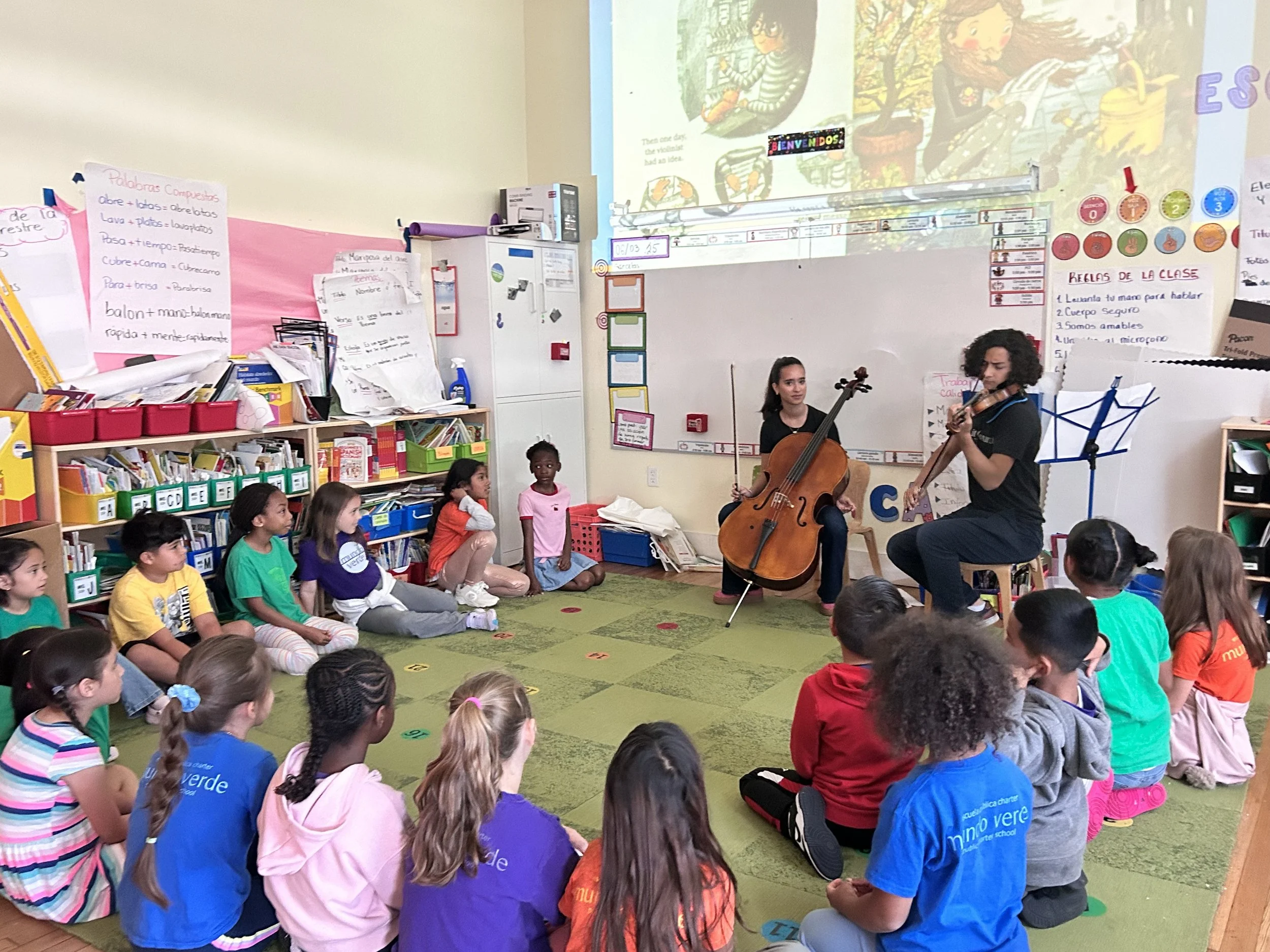

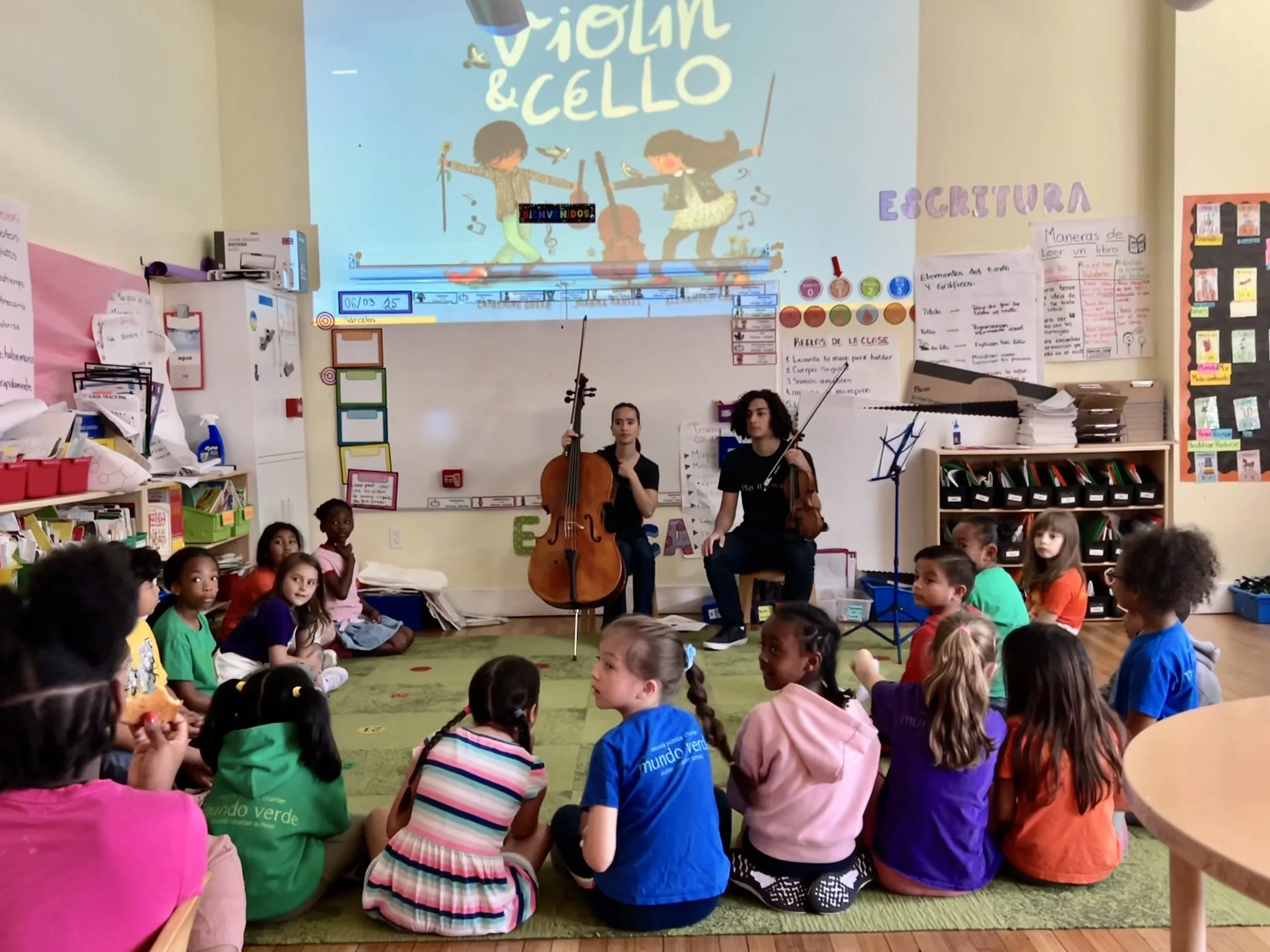
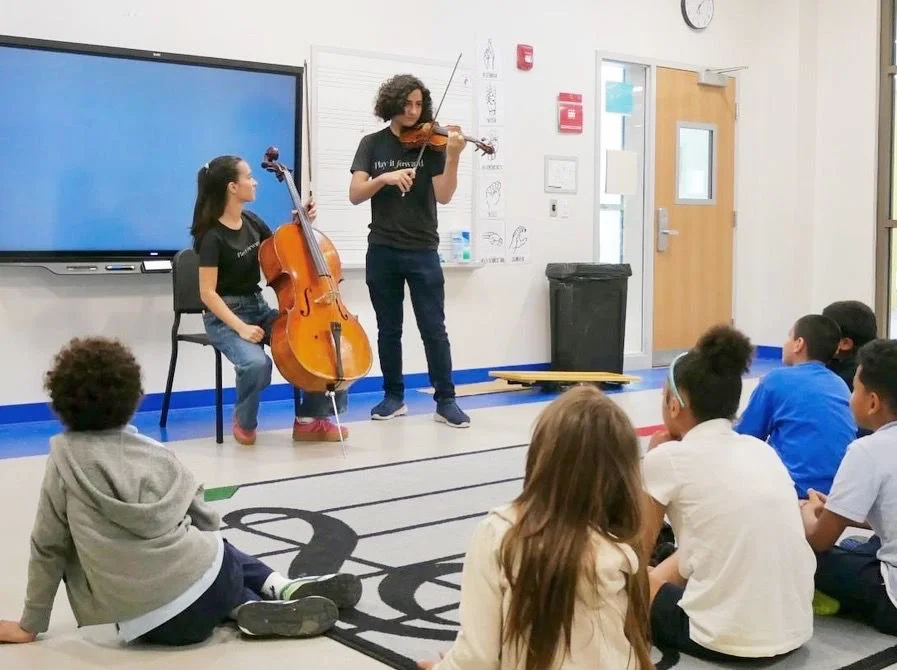
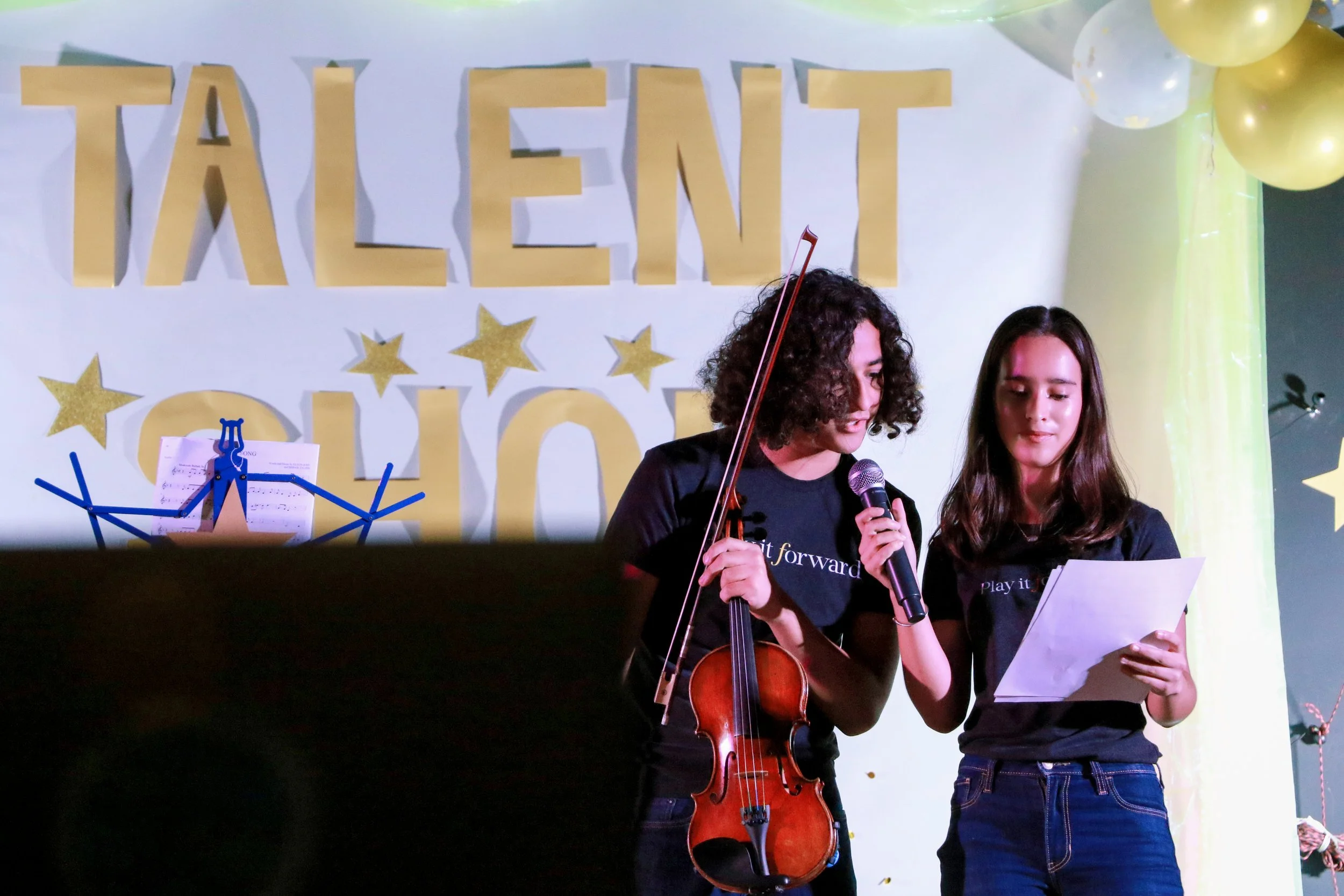
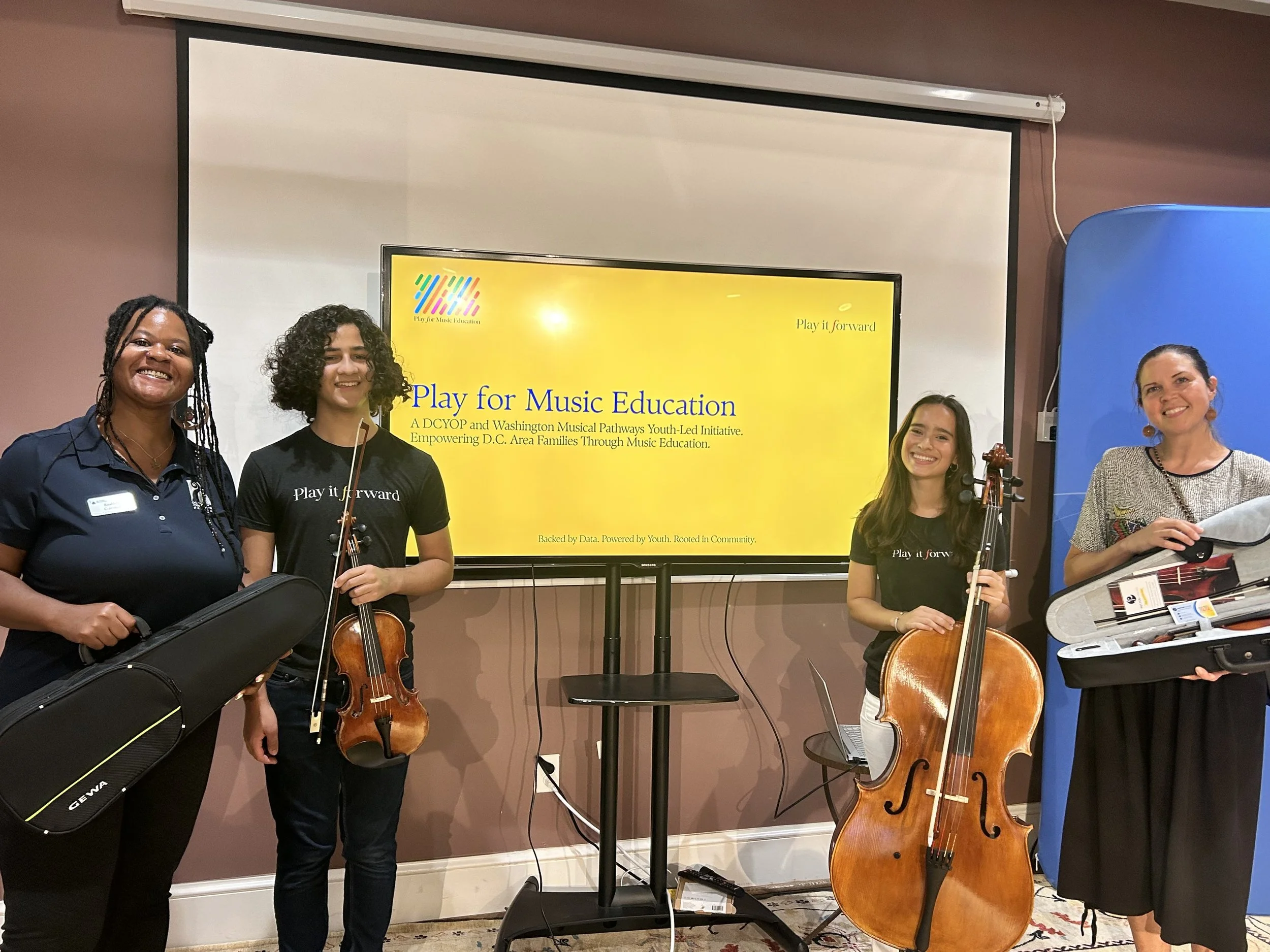
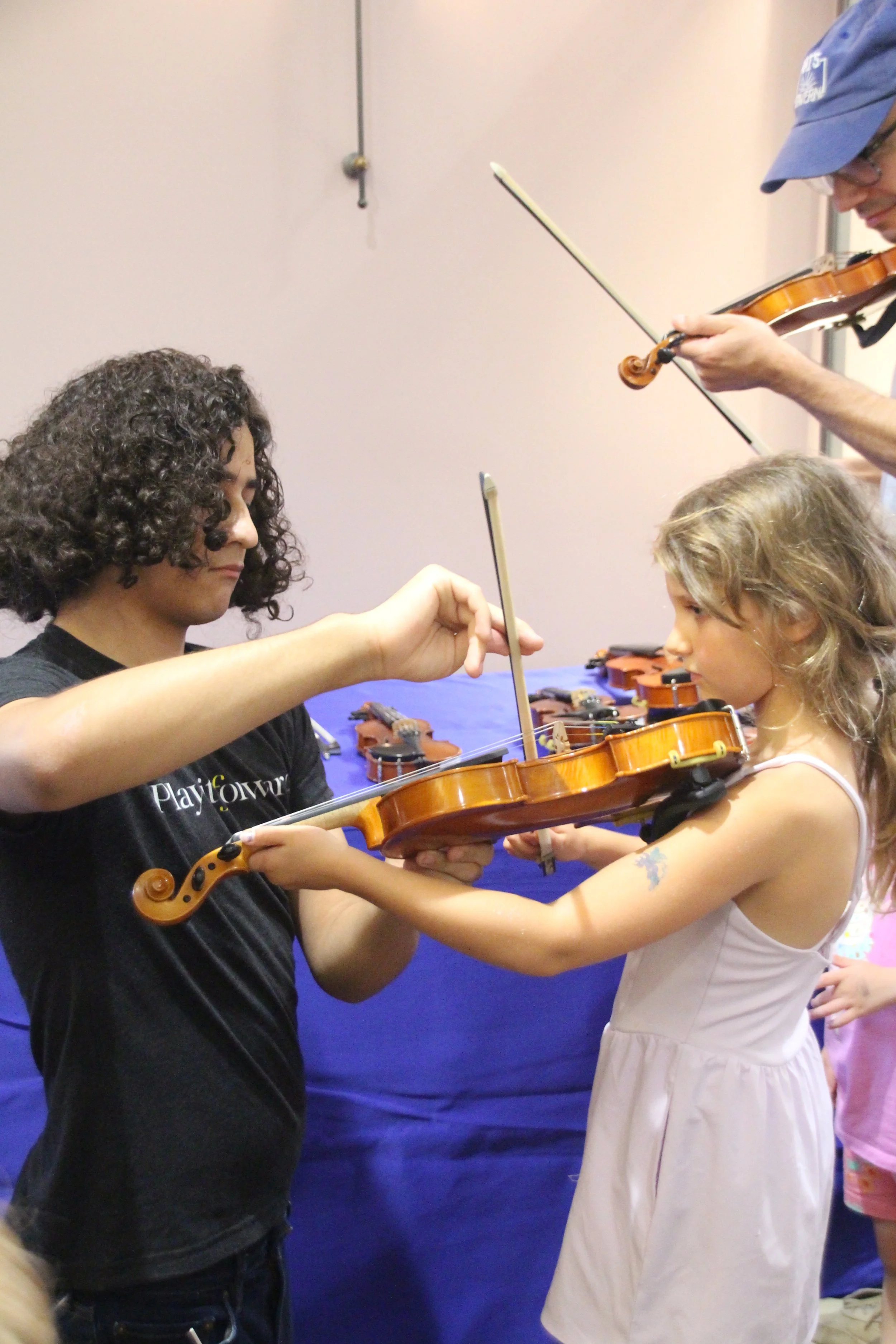

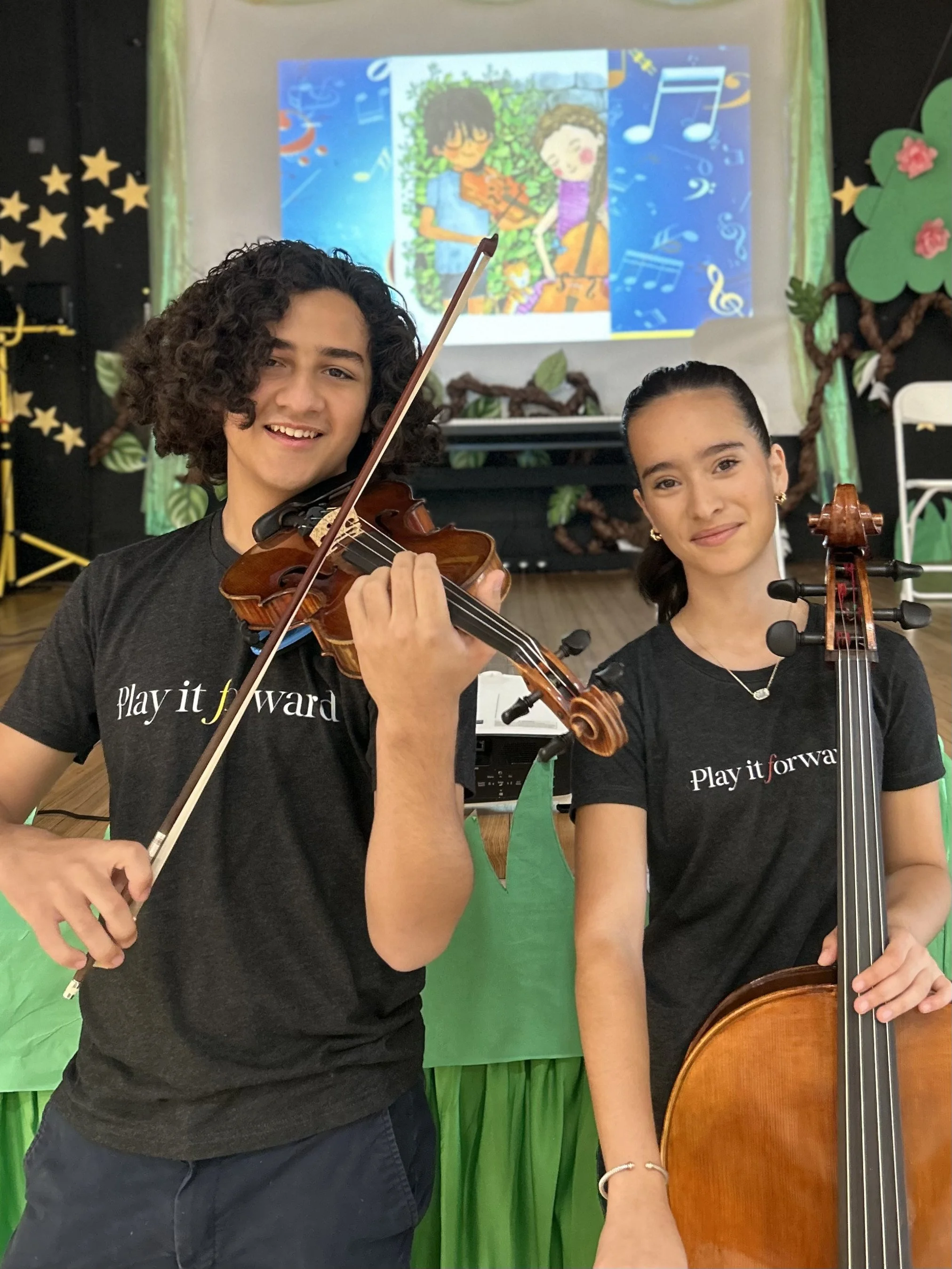
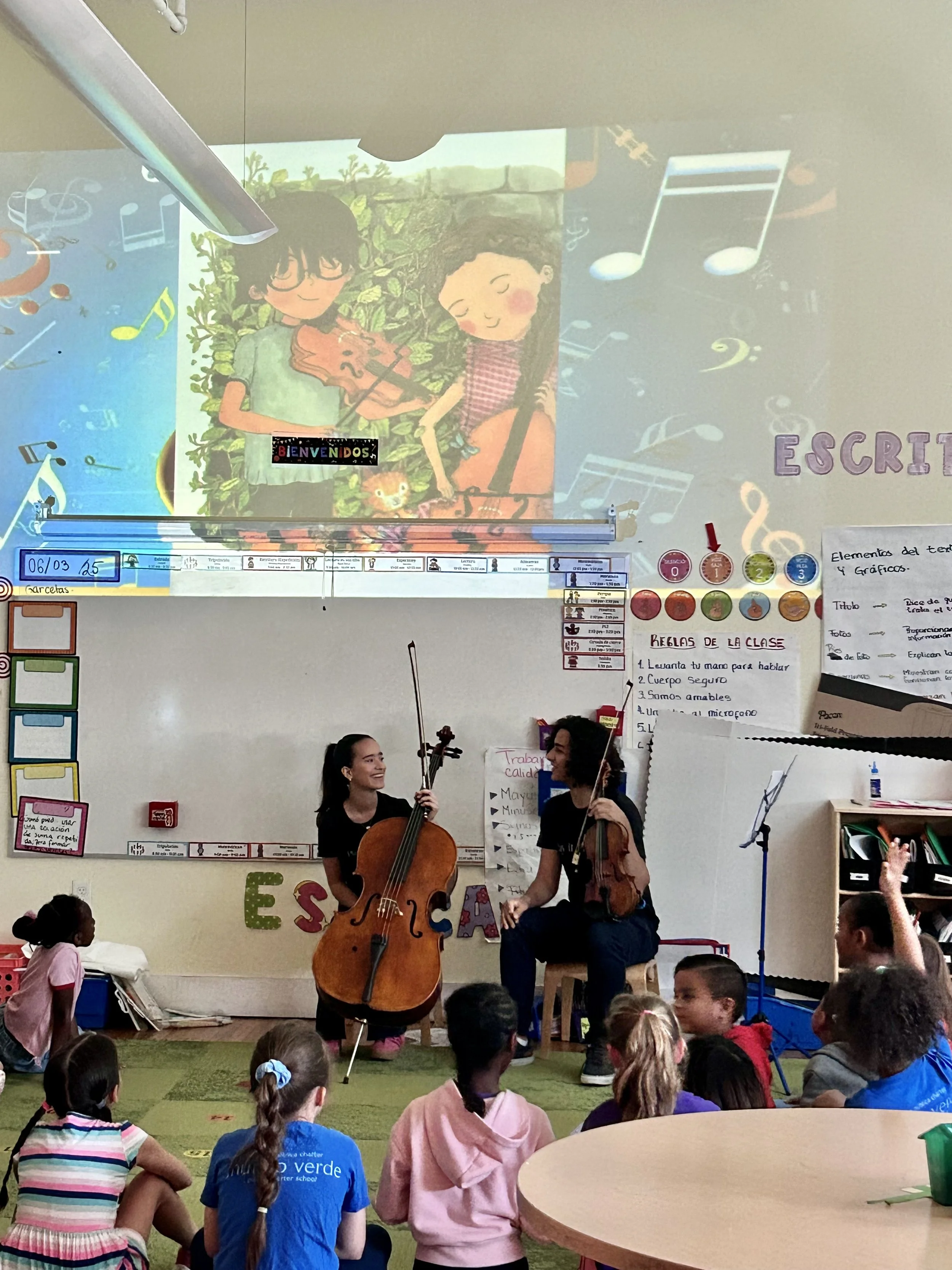
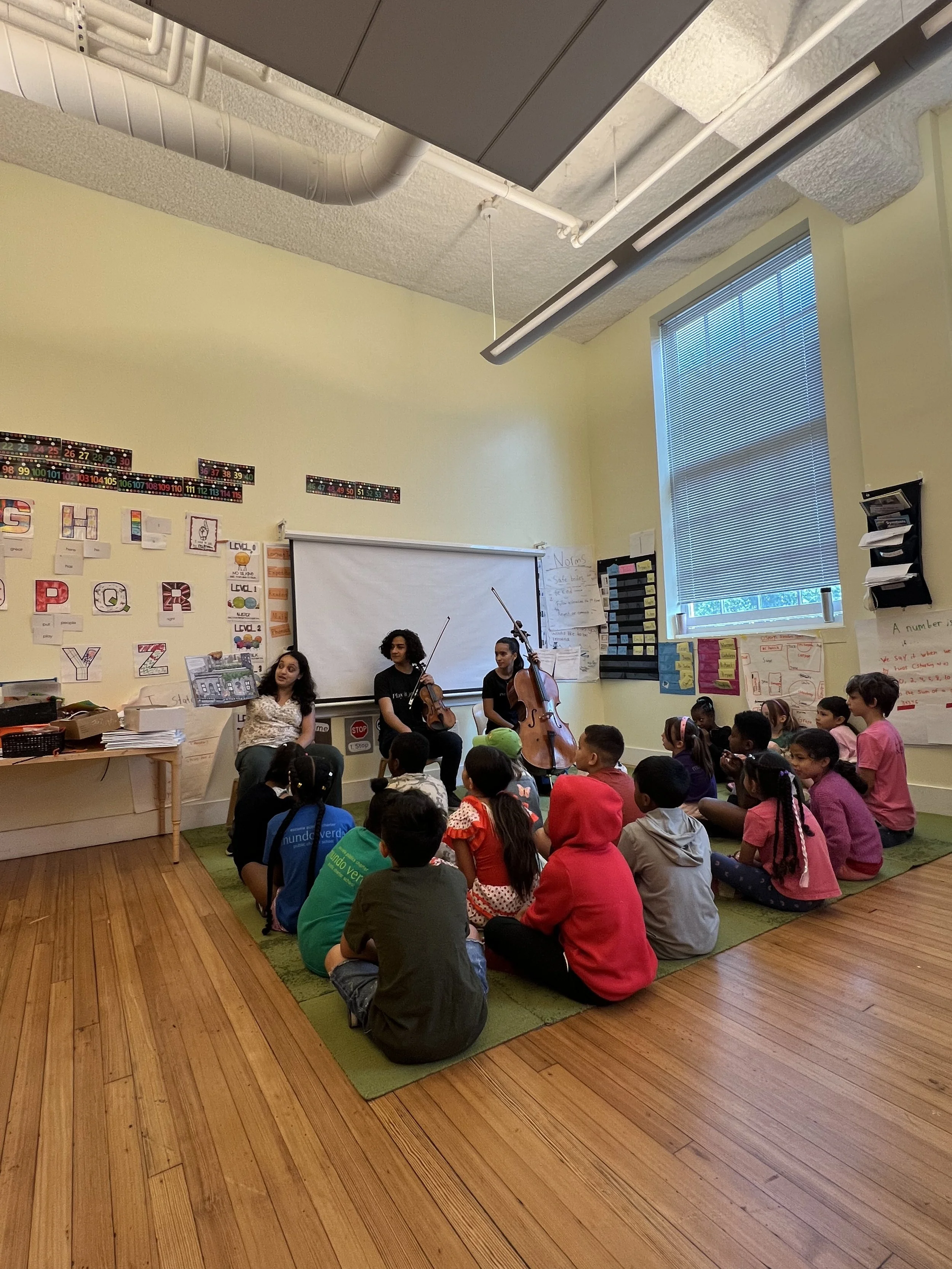
“We would welcome you back anytime! Our students are still talking about your performance weeks later. The impact of having young musicians like you, showing them what's possible, is so much greater than adult presentations. You made classical music fun and accessible because you were them not too long ago.”
—Ms. Katalina Beltran, Dean, Mundo Verde PCS
FAQs
-
Depending on your school requirements, DCPS requires a registered nonprofit to sign community service hours, which makes schools eligible to sign your form. We are also working with a nonprofit partner to get hours outside of school performances signed when volunteering with Play for Music Education.
Each event will take 2-3 hours (including prep). Requirements also vary by state; for example, DC requires 100 hours. -
Young musicians break the stereotype that classical music is elitist or inaccessible. Kids see you as relatable role models, not adult professionals. You remember being their age, so it’s easier to relate!
Parents trust peer recommendations. You're living proof that music education is achievable and transformative, regardless of background. -
Absolutely! This is how we scale impact. We provide materials, training, and support. You bring the venue—any elementary school, community center, or library.
We'll guide you through planning, provide musical storybook suggestions and resources about free programs. We guide you on how to get community service hours.
You're not just volunteering; you're pioneering change in your community! -
Perfect—neither had we! The program is designed to be simple. You perform music and answer questions.
Kids are the most enthusiastic, honest audience you'll ever have. We'll prepare you for common questions and tell you about the kids' favorites (yes, Baby Shark, Twinkle, and Happy Birthday).
If you are shy, you can work in teams and not alone. It's easier than you think and incredibly rewarding. -
We're tackling three problems: 1) Many families don't know music education's benefits (better grades, focus, emotional regulation), 2) Classical music seems inaccessible or "not for us," 3) Free/affordable programs exist but are invisible.
By having young musicians share their stories and connect families to resources, we're building bridges where none existed.
-
You're using your unique skills. Let’s be honest, not everyone can do what you do. You're addressing educational equity, a critical issue of social justice.
The impact is immediate and visible (kids' faces light up). You're part of a movement to expand arts education. Plus, it directly builds valuable life skills through performance experience and networking.


